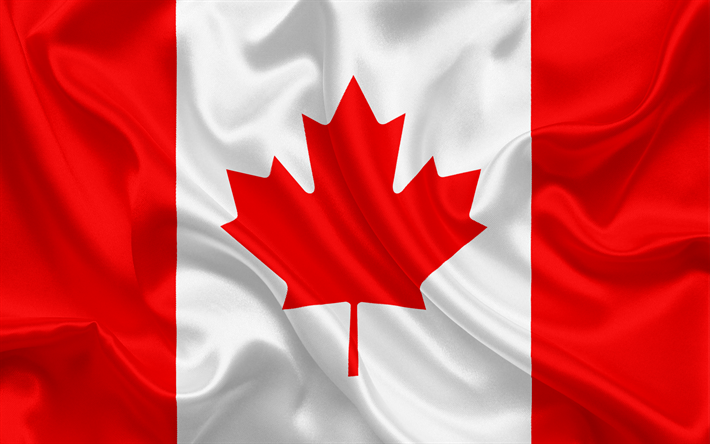
Study In Canada
Here’s a comprehensive guide for all Indian students who want to study in Canada
Here’s a comprehensive guide for all Bangladeshi students who want to study in Canada
Why Study in Canada
High on academic quality but affordable tuition fee – Canada is one of the best study destinations for students.Hosting nearly half a million international students, Canada is one of the best study destinations for students.Hosting nearly half a million international students,

, Canada is known to offer high quality education at affordable tuition fee with degrees that are globally recognised. Add to it, an excellent quality of life, immense post-study work and immigration opportunities – Canada stands out as a popular country to study among Bangladeshi students..
Here are the top 8 reasons why Canada could be a great choice:
Academic excellence
One of the most important reasons why students choose to study in Canada is because of the high quality of education. When a student receives a degree from a Canadian university, it acts as a mark of trust and excellence. 26 of Canada’s universities rank in the QS World University Ranking 2021and 27 of them in The world University Ranking 2021
Research opportunities
One of the biggest reasons why Canadian education stands unique is because of its strong focus on research and development. If you’re a research scholar, there can be no country better than Canada. The government of Canada offers great support to research in the disciplines of medicine, telecommunication, agriculture, environmental science, and technology.
Affordable, falls in budget
Tuition fee in Canada, when compared to universities in the US and UK, is fairly cheaper. And when considering the return on investment, it is quite a viable option for Indian students. ??You can also apply to a range of scholarships to cut down on your educational expenses
Cultural diversity
In Canada, you’ll find extremely warm and welcoming people who come from varied ethnic groups with different cultures and lifestyle. The multicultural environment in Canada promotes friendliness and peaceful living like no other country. In fact, you will find a lot of Indians studying, working and living here. You can also experience festivals and rituals such as:
- The Montreal International Jazz Festival
- Calgary Stampede
- NHL Hockey
- Experience “Poutine Week” – The blend of French fries, delicious gravy and cheese curd.
- Just for Laughs comedy Festival in Montreal
Safe and peaceful
Canada has been consistently ranked as one of the safest nations in the world. In 2018, the Global Peace Index*, listed Canada as the sixth peaceful country across the globe. As international student, you’ll enjoy the same rights as any other Canadian.
Earn while you learn
Thanks to its special regulations, Canada provides all its international students with an opportunity to work for up to 20 hours every week during their semesters and full-time during the summer and winter breaks. To work on-campus or as an intern in any company, you would not require any additional work permit as your study permit is enough to help you find a part time job
Vibrant and lively campus life
At all Canadian campuses you can expect events, fests, and other activities being conducted all through the year. This creates a happy and lively environment for all the students, helps you network and meet new people besides keeping the homesickness away
Immigration opportunities
Canada’s Post-Graduation Work Permit Program (PWPP) allows students to stay and work in Canada for up to three years after completion of their graduation. You can gain some international work experience and apply for permanent residency later on
Top Grade Academic System
If you want to pursue a degree in computer and information technology, then study in Canada for the best place to be. Digital media, video game, aeronautical engineering industries, and biotech is particularly strong in Canada.

The education system is especially beneficial to students of transportation, telecommunications, and engineering. There are several highly ranked universities all over Canada. The education quality is as good as the UK and USA but at a lower cost and you can also apply for scholarships in Canada! To apply, find out detailed requirements about scholarships, including Scholarship Canada, scholarships can be gotten easily through a well-maintained application.
The Canadian education system has 3 levels, which are:
- Primary
- Secondary
- Post-Secondary (Elsewhere it is referred to as Tertiary or Higher Education)
The post-secondary level of education is further sub-divided into the following categories:
- Certificate (around 1 year)
- Diploma (for 1- 2 years)
- Advanced Diploma (2- 3 years)
- Bachelor’s/ Undergraduate (4 years full-time)
- Master’s/ Postgraduate (can only be accessed after completion of no. 4 on this list; 1- 2 years)
- PhD/ Doctoral (4- 7 years)
Highest Quality of Life
Canada ranks no. 1 in the world when it comes to the quality of life. International students in Canada maintain a high standard of living, and it’s a great place to live, study, and work.

As per the World University Rankings, Canada also has 5 of the best student cities in the world. The ranking was based on several criteria, including affordability, the diversity of the student population, and employers’ perception of graduates on the job market.
Student Essentials
We, at IEC, understand how challenging it can be to pursue your studies abroad. We provide a range of Student Essentials services to eliminate complexity and stress making your international study experience journey, a hassle-free adventure.


Cost of studying in Canada
Studying abroad can be an expensive affair, but thankfully, Canada is one country where quality education is available at tuition rates lower than many other countries.
But before you depart from India, ensure that you consider expenses like accommodation, food, health coverage and travel along with your tuition fee when calculating the estimated cost of studying in Canada. This will help you plan your budget more effectively.
1. Tuition fee is your prime expenditure
Your expenditure on tuition fee depends on the type of qualification and institution you opt for. To cover this, you will need approximately between CAD 13,000 and CAD 35,000 a year.
Most commonly, courses in humanities, education and arts are a little cheaper, while subjects such as medicine and engineering are likely to be more expensive. If you wish to study at a postgraduate level, the tuition fee is typically higher and the costs vary depending on the program. As with most other countries, MBA programs are often the most expensive. The average cost for these programs ranges between CAD 30,000-42,000.
S.no. | Study program | Average annual fee |
| 1 | Undergraduate program | $13,000 to $20,000 |
| 2 | Postgraduate master’s degree | $17,000 to $25,000 |
| 3 | Doctoral degree | $7,000 to $15,000 |
2. Calculate accommodation costs
Most universities in Canada offer on-campus residence facilities to international students. You can also opt for off-campus accommodation wherein you can share apartments with other students from India. Cost for on-campus accommodation may range anywhere from CAD 8,000 to CAD 10,000 (annually) whereas living in a shared apartment can cost you around CAD 400 to CAD 700 per month depending upon your location and time of the year. Remember, the rentals vary from city to city.
An additional option is a homestay where you stay with a host family in Canada. In this, you will have to pay a placement fee of CAD 200 and a monthly fee of CAD 750 – 950 in return for meals and a room. However, you’ll be able to participate in local activities with the host and learn about the culture closely.
3. Cost of your student visa and permit
To study in Canada, the first step is to secure a valid study permit and that comes with its own costs (approx. CAD 150). Feel free to consult your IDP counsellor for latest updates and information on the visa application process and related costs.
4. Living expenses
You need to keep a little money aside for your grocery shopping, social activities and emergencies. When living in a foreign country as a student, it is better to keep track of your expenditures so that you do not overspend. Considering various expenses and living costs, a single student budget in Canada comes out to be approx. CAD 15,000 (indicative). You should also consider these common expenses when creating your budget:
- Communication expenses: As a student from India, you’d be frequently calling your friends and family back home. Therefore, always keep a section of your budget for phone bills and data expenses. Look for cost-effective calling plans and student discounts in order to stay connected with your loved ones within your monthly budget.You can find a phone plan that suits your needs, however, the average cost is approx. CAD 20 per month.
- Books and supplies: Purchasing textbooks can get a little expensive. For instance, books for engineering courses can cost you approx. CAD 250 to CAD 350. For courses like law, medicine and pharmacy, the value can go even higher. You can manage this in your budget by opting for second hand books, buying digital versions or even securing a library membership.
- Personal expenses and incidentals: Your daily expenses will include laundry, toiletries, clothing, dining out, etc. This depends entirely on the kind of lifestyle you choose for yourself.
5. Consider health support and insurance
It is mandatory for all students travelling to Canada to get medical insurance before the commencement of their program. In Canada, international student health insurance is priced between $600 and $900 per year (indicative). In British Columbia, Quebec, Alberta, Newfoundland, Manitoba, Labrador or Saskatchewan, you will be insured under the respective provincial health plans as per the length of your stay.
6. Transportation. Know how much it will cost to move around
Unless your institution provides with a shuttle service to-and-fro from your lodging, you’ll have to rely on the available public transport.
For short distances | Make use of regional trains, buses, and subways. Metropolitan cities like Toronto, Vancouver and Montreal offer buses and subways. Smaller cities may or may not have subways, but you can always avail buses, commuter trains or local taxi service. Commuting cost can range anywhere between CAD 80 and CAD 110 for a month (indicative). It is a good idea to get monthly passes for commuting to college as they come in fairly cheap |
Park and Ride service | If you live far from the bus stop, some cities give you the option to drive down to a special parking area where you can park your car and then take a train or bus. You can also rent a car by getting an international driver’s license. Your commute expense will vary accordingly. |
For long distances | For travelling between different cities, you can avail long-distance buses, railways, and flights. |


